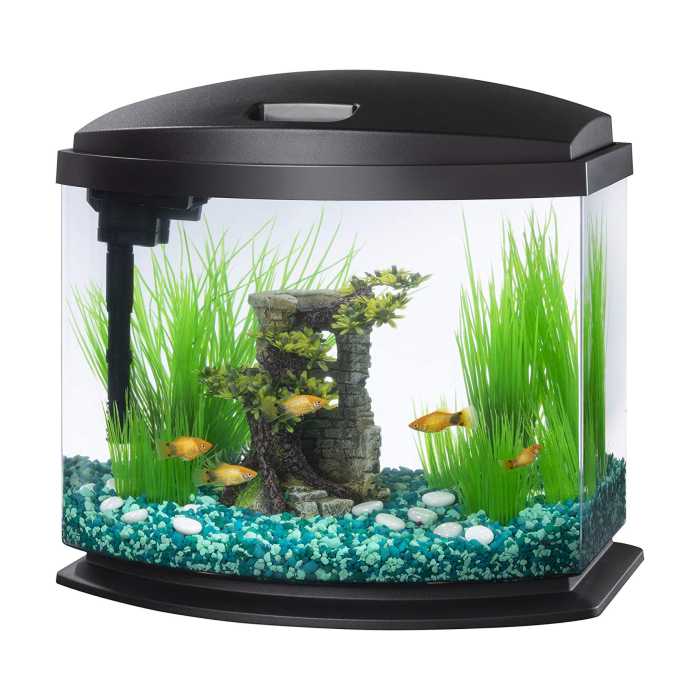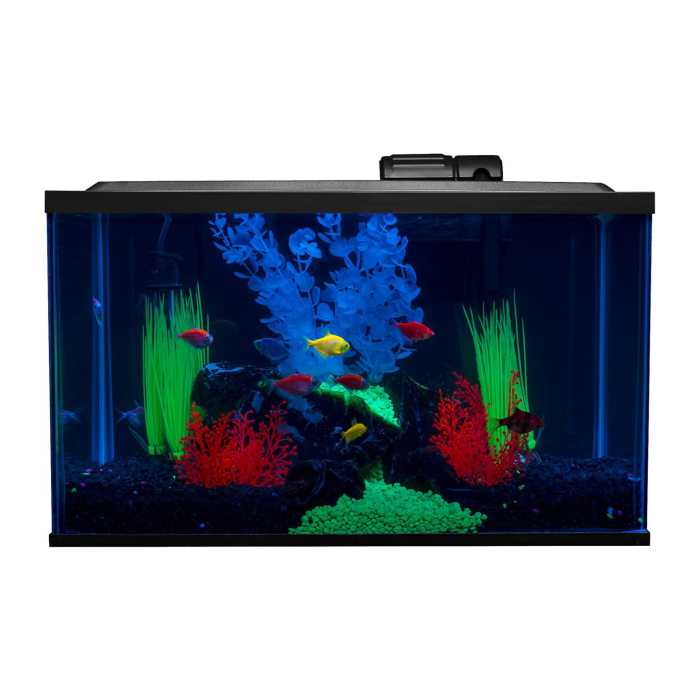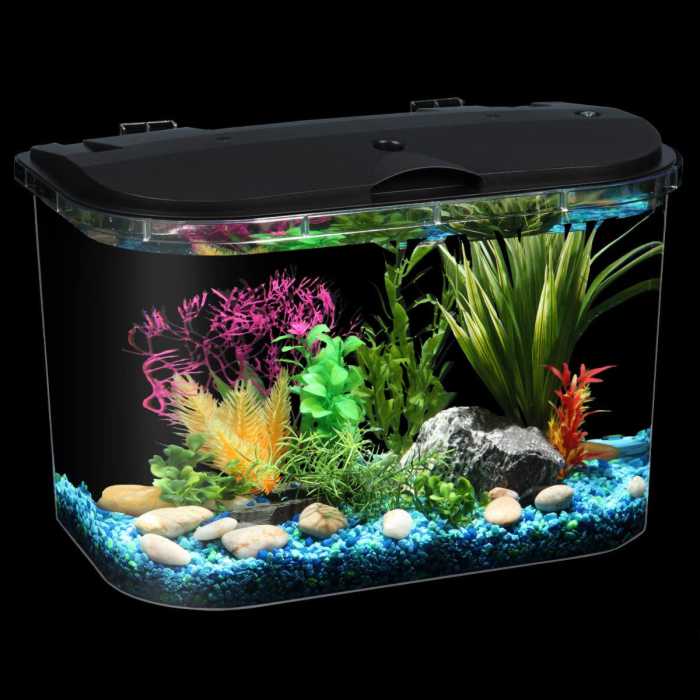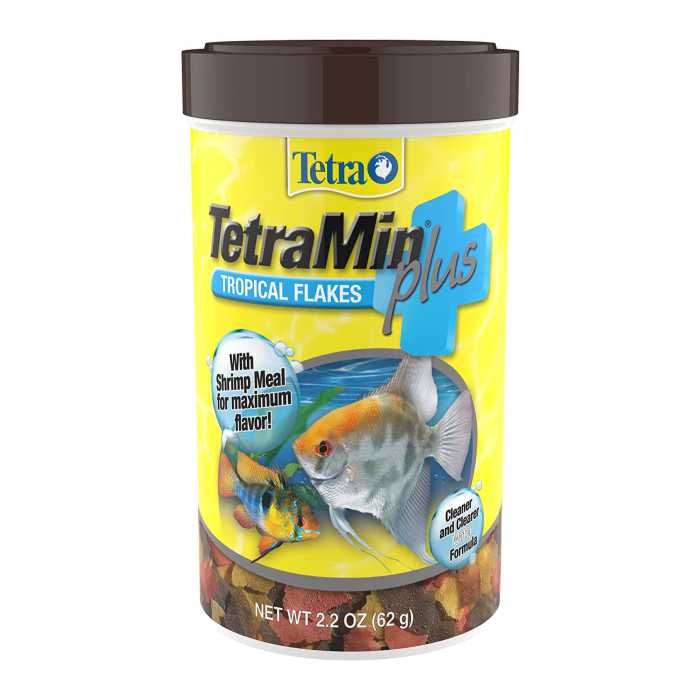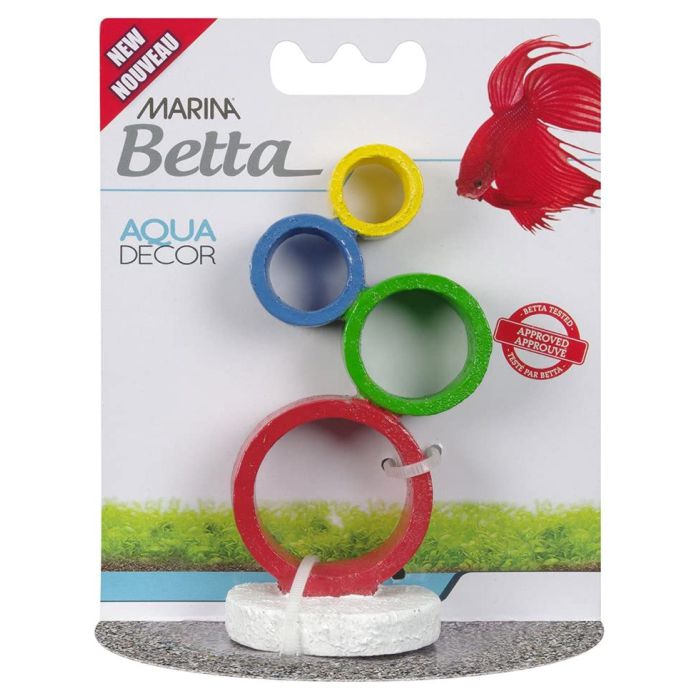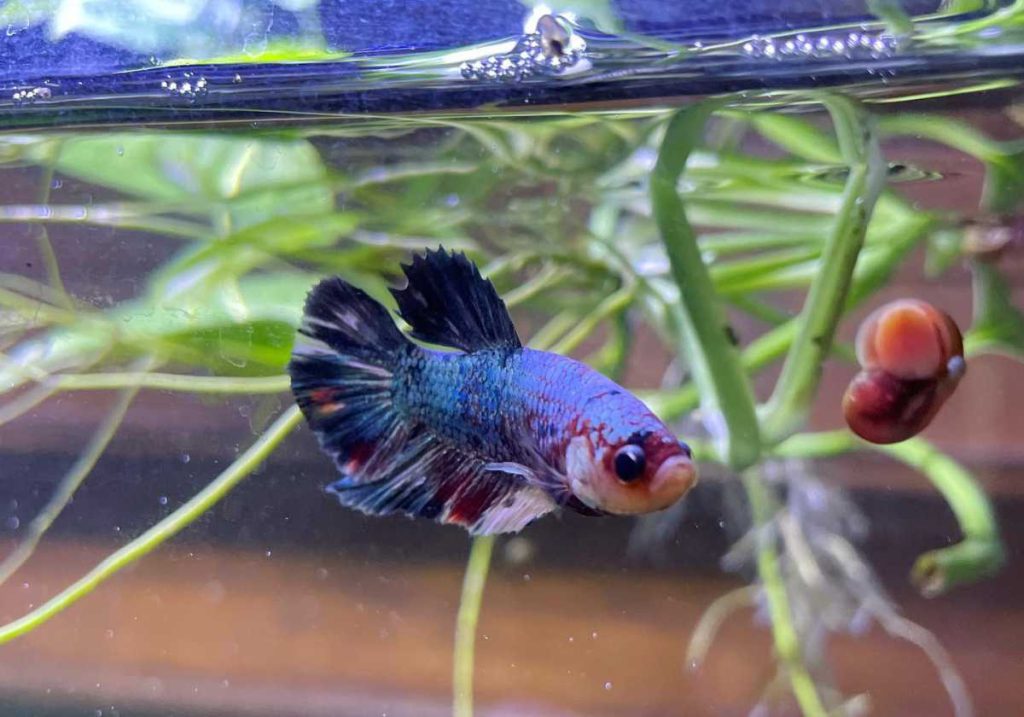As an Affiliate, We may earn a commission that doesn't cost you extra from qualifying purchases using links in this post. It helps keeps this blog running.
Betta fish, also known as Siamese fighting fish, are small, colorful fish that are native to Southeast Asia. They are known for their vibrant colors, flowing fins, and unique personalities, which make them popular pets among fish enthusiasts.
The great thing about Betta fish is that they’re easy to care for, making them a suitable option for both beginners and experienced fish keepers. Unlike other fish, Betta fish don’t require a large aquarium, so you won’t need to worry about a big setup. Plus, their territorial nature can be fascinating to observe as they establish their territory in their tank.
To properly care for your Betta fish, you’ll need to provide them with a suitable tank setup, a nutritious diet, and maintain their water quality. You’ll also need to understand their unique behaviors and social interactions to create a healthy and happy environment for them.
Importance Of Proper Care For Betta Fish
Providing proper care for Betta fish is crucial to ensure their health and well-being. Aside from that, here are other importance of taking proper care of your betta fish:
- Health and Well-being: Your betta fish, just like any living creature, needs a healthy and conducive environment to thrive. Clean water, appropriate temperature, and suitable nutrition are essential for their physical and mental health. Regular monitoring of water parameters, such as pH and ammonia levels, and addressing any issues promptly is crucial to prevent stress or diseases and ensure your betta fish stays healthy.
- Longevity: With proper care, your betta fish has the potential to live for several years. By meeting their specific needs, you can extend their lifespan and enjoy their companionship for a longer time. Neglecting their care can lead to health problems, shorten their lifespan, and result in premature death, which can be heartbreaking for any pet owner.
- Behavior and Personality: Betta fish are known for their unique personalities and engaging behaviors. Providing them with a well-maintained and enriched environment encourages natural behaviors such as exploring, swimming, and interacting with their surroundings. Neglecting their care, however, can lead to stress, lethargy, or aggressive behavior, which may impact their overall well-being and enjoyment of life.
- Prevention of Diseases: Your betta fish is susceptible to various diseases, such as fin rot, ich, and velvet, which can be prevented or minimized with proper care. Maintaining clean water, avoiding overcrowding, and providing a balanced diet can boost their immune system and reduce the risk of diseases. Regular observation and prompt action in case of any signs of illness are crucial to prevent the spread of diseases and ensure the well-being of your betta fish.
- Responsible Pet Ownership: As a betta fish owner, it’s your responsibility to provide them with the care they need. This includes creating a suitable environment that mimics their natural habitat, providing a balanced diet, and monitoring their health regularly. Being informed about their specific care requirements and staying updated with best practices in betta fish care is part of responsible pet ownership. By being a responsible pet owner, you can ensure the health and happiness of your betta fish and create a meaningful bond with them.
Setting up the Betta Fish Tank
Setting up a betta fish tank involves several key steps to ensure your fish’s health and well-being. First, gather all the necessary supplies, including a suitable tank (at least 5 gallons), heater, thermometer, substrate, decorations, and betta fish food. Rinse the tank and substrate thoroughly, add them to the tank, and install a reliable heater and thermometer to maintain a stable temperature (78-82°F). Optionally, you can use a filter for a clean environment. Acclimate your betta fish to the temperature and introduce them to the tank.
Once your betta fish is in the tank, feed them high-quality betta fish food in small portions once or twice a day, and remove uneaten food to maintain water quality. Establish a consistent lighting schedule of 8-12 hours per day using a timer. Regularly monitor the temperature, water quality, and well-being of your betta fish, perform partial water changes, and clean or replace the filter as needed. Keeping the tank clean and maintaining good water quality is crucial for the health of your betta fish.
Click Here To Read The Full Guide On Setting Up A Betta Fish Tank
Water Quality and Maintenance: Keeping Your Betta Fish Healthy and Happy
Regular water changes are essential for keeping your betta fish tank clean and maintaining appropriate water parameters. Betta fish are susceptible to toxins that can build up in the water, such as ammonia and nitrites, which can harm their delicate gills and fins. Accumulation of these toxins can lead to stress, illness, and even death. Therefore, it is crucial to perform regular water changes to remove these harmful substances from the tank and provide a healthy environment for your betta fish.
To ensure the water in your betta fish tank is of good quality, it is important to test the water parameters regularly. You can use a reliable aquarium water test kit to measure the pH, ammonia, and nitrite levels in the water. Ideally, the pH of the water should be between 6.5 and 7.5, and the ammonia and nitrite levels should be at 0 ppm (parts per million). If the water parameters are outside the appropriate range, it is necessary to take corrective actions, such as performing water changes or using water conditioners to detoxify the water.
So, How Often Should You Perform Water Changes For Your Betta Fish Tank?
A general rule of thumb is to perform a 25% to 50% water change every week for a filtered tank and a 50% to 100% water change every week for an unfiltered tank. However, the frequency of water changes may vary depending on the size of your tank, the number of fish, and the water parameters. It is crucial to monitor the water quality regularly and adjust the water change schedule accordingly.
When performing water changes, it is essential to use proper tank cleaning techniques to avoid stressing your betta fish. Avoid using soap, detergents, or chemicals to clean the tank, as they can be harmful to your fish. Instead, use a clean cloth or sponge to wipe the interior of the tank, and rinse it thoroughly with water. Also, remember to clean or replace the filter media regularly, as it can become clogged with debris and lose its effectiveness in removing toxins from the water.
Feeding and Nutrition
Feeding your Betta fish properly is crucial for their overall health and well-being as it directly impacts their overall health and well-being. Betta fish are known to be carnivorous, so it’s important to provide them with a balanced and appropriate diet. As carnivorous fish, Betta fish have specific dietary needs that must be met to ensure they thrive in their environment. A balanced diet is essential for their growth, vitality, and longevity.
To start, it’s essential to understand the dietary needs of Betta fish. In the wild, Betta fish primarily feed on small insects and larvae. As such, their diet in captivity should mimic this natural diet as closely as possible. While they can eat dry commercial Betta fish pellets, it’s also important to incorporate other types of food for variety and nutrition.
When it comes to Betta fish food, there are several options to choose from such as pellets, flakes, and frozen or live foods such as brine shrimp, daphnia, or bloodworms. Variety is key, as it provides a balanced nutritional profile. High-quality pellets or flakes formulated specifically for Betta fish are readily available in pet stores and are a convenient and staple part of their diet. These pellets or flakes are nutritionally balanced, providing Betta fish with the essential nutrients they need to thrive. Look for pellets or flakes that contain a high percentage of protein, as protein is a crucial component of a Betta fish’s diet.
In addition to pellets or flakes, Betta fish can also be fed frozen or live foods as occasional treats. These can include brine shrimp, bloodworms, daphnia, or mosquito larvae, which provide essential nutrients and mimic the Betta fish’s natural diet in the wild. However, it’s important to note that frozen or live foods should not be the sole source of nutrition for Betta fish, as they may not provide a complete and balanced diet.
Establishing A Feeding Schedule And Portion Sizes
When it comes to feeding frequency and quantity, it’s essential to be mindful of not overfeeding Betta fish. Establishing a feeding schedule is important to ensure that Betta fish receive the right amount of food. A general rule of thumb is to feed them two to three small meals per day, using an amount that they can consume within a few minutes. Avoid leaving uneaten food in the tank, as it can quickly deteriorate water quality and lead to health problems.
Overfeeding can lead to obesity and other health issues, such as constipation and swim bladder problems. So, It’s crucial to monitor your betta fish eating habits and adjust the quantity accordingly to prevent overfeeding.
It’s also important to note that Betta fish have small stomachs and can go without food for a couple of days without any issues. In fact, periodic fasting can be beneficial for their digestive health. If you need to be away or cannot feed your Betta fish for a day or two, it’s better to skip feeding rather than overfeeding before you leave.
Tankmates and Tank Compatibility
When it comes to choosing tankmates for your Betta fish, it’s important to consider their temperament. Male Betta fish are known for their aggression and territorial behavior, so it’s generally best to house them alone in their own tank. However, female Betta fish or certain non-aggressive fish species can potentially be compatible with Betta fish in a larger tank, with careful monitoring.
When selecting tankmates for your Betta fish, it’s crucial to choose fish species that are known to be peaceful and not known for fin-nipping or aggressive behavior. Some examples of suitable tankmates for Betta fish include peaceful community fish like small schooling fish, such as tetras or rasboras, or bottom-dwelling fish like corydoras catfish. However, it’s still essential for you to further research and understand the specific care requirements and temperament of each fish species before introducing them to the same tank with a Betta.
When introducing new tankmates to your Betta fish tank, it’s recommended to do so gradually and monitor their interactions closely. Providing plenty of hiding spots and visual barriers, such as plants or decorations, can help reduce stress and potential conflicts among tankmates. It’s also important to ensure that the tank is adequately sized to accommodate all the fish comfortably and to prevent overcrowding, as overcrowding can lead to stress and aggression among them.
Also keep a close eye on the behavior of all the fish in the tank, including the Betta fish and tankmates, and be prepared to separate any fish that display aggressive behavior or show signs of stress. If any conflicts or issues arise, it’s crucial to take appropriate action to prevent harm to the fish, such as providing additional hiding spots or removing the aggressive fish from the tank.
Remember, each fish has its unique personality, and compatibility can vary, so it’s essential to closely monitor the interactions and be prepared to make adjustments as needed to ensure a harmonious and stress-free environment for all the fish in the tank.
Maintaining Betta Fish Health
Taking care of your Betta fish’s health is crucial to ensure they live a happy and healthy life. To keep your Betta fish in tip-top shape, there are a few key tips to keep in mind.
Monitoring water quality regularly
One of the most important aspects of Betta fish care is maintaining good water quality in their tank. Betta fish are sensitive to changes in water conditions, so it’s essential to monitor parameters like temperature, pH, ammonia, nitrite, and nitrate levels regularly. Investing in a good quality water test kit can help you keep track of these parameters and ensure that your Betta fish are living in a healthy environment.
Performing water changes and tank maintenance
Regular water changes are essential for Betta fish health. It helps remove accumulated toxins and waste, maintaining optimal water quality. As a general guideline, aim to change about 25-50% of the water in your Betta fish tank every week or as needed, depending on the tank size and stocking level. Along with water changes, it’s also essential to clean the tank and equipment, such as the filter and heater, to prevent the buildup of debris and maintain a clean and healthy environment for your Betta fish.
Provide a balanced diet for your Betta fish
A high-quality Betta fish pellet or flake food formulated for their specific dietary needs is ideal. Avoid overfeeding, as it can lead to obesity and other health issues. Occasionally, you can offer frozen or live foods such as insects and worms as treats to add variety to their diet.
Recognizing and treating common Betta fish health issues
Betta fish are susceptible to certain health issues like fin rot, ich, constipation, and stress-related illnesses. Keep an eye out for signs of these health issues, such as frayed fins, white spots, bloating, or changes in behavior. If you notice any of these signs, it’s important to take action promptly.
Fin rot is a bacterial infection that can cause the fins of your Betta fish to appear ragged or deteriorate. Ich, on the other hand, is a parasitic infection that presents as small white spots on the body, fins, and gills of the fish. It’s crucial to keep an eye on your Betta fish for any signs of illness, and if you notice any abnormalities, consult a qualified aquatic veterinarian for proper diagnosis and treatment. Early detection and treatment can help prevent these health issues from worsening and affecting the overall health of your Betta fish.
Preventive measures to keep Betta fish healthy
Prevention is always better than cure when it comes to Betta fish care. Implementing preventive measures can help keep your Betta fish healthy and reduce the risk of diseases. One important preventive measure is quarantine. Quarantining new fish before introducing them to the main tank can help prevent the spread of diseases to other fish in the tank. Additionally, maintaining proper tank hygiene, such as regular cleaning of substrate, decorations, and equipment, can help prevent the buildup of harmful bacteria and keep the tank environment healthy for your Betta fish.
Providing Enrichment for Betta Fish
As responsible Betta fish owners, it’s crucial to provide not only for their physical needs but also their mental well-being. Enrichment plays a vital role in keeping Betta fish healthy and happy in their environment. Just like any other pet, Betta fish also need mental stimulation to prevent boredom and stress. A lack of mental stimulation can lead to lethargy and even other health issues. Providing mental stimulation helps keep their minds active and engaged, resulting in happier and healthier Betta fish.
Here are some ways to provide enrichment for your Betta fish:
Provide Hiding Spots and Resting Areas
Betta fish are naturally curious and love to explore, but they also need places to hide and rest. Providing hiding spots, such as caves, tubes, or decorations with small openings, allows Betta fish to have a sense of security and privacy. Resting areas, such as broad leaves or floating plants, also provide Betta fish with spaces to relax and rest.
Incorporate Live Plants and Tank Mates
Live plants not only add natural beauty to the aquarium, but they also offer several benefits for Betta fish. Live plants provide oxygen, help maintain water quality, and offer hiding spots and resting areas for Betta fish. Additionally, some tank mates, such as peaceful fish species or shrimp, can serve as companions for Betta fish and stimulate their natural behavior, as long as they are compatible with Betta fish.
Engage in Interactive Play with Your Betta Fish
Interacting with your Betta fish through playtime can be an enjoyable and beneficial activity for both you and your fish. Betta fish are known to respond positively to stimulation, and interactive play can help keep them mentally and physically engaged. Consider the following ideas for interactive play with your Betta fish:
- Using a Laser Pointer or a Fish Toy:
You can use a laser pointer or a fish toy to create movement in the water, which can entice your Betta fish to swim and play. Avoid shining the laser directly on your Betta fish to prevent stress or damage to their eyes.
- Training Betta Fish with Simple Tricks:
Betta fish can learn simple tricks, such as swimming through hoops or following your finger, with patience and positive reinforcement. Training your Betta fish can provide mental stimulation and strengthen the bond between you and your fish.
Be sure not to do too much so as to avoid stressing or overstimulating your Betta fish and always monitor their response to playtime.
Troubleshooting Common Betta Fish Care Issues
Betta fish, like any other pet, may encounter some issues that require troubleshooting. Here are some common problems that Betta fish owners may face and how to address them:
Dealing with aggressive Betta fish behavior
Betta fish can sometimes exhibit aggressive behavior, and it’s important for you to understand the causes and then take appropriate steps to prevent and manage it. Here are some key points to keep in mind:
- Understand the causes of Betta fish aggression, which can include territoriality and mating behavior. Being aware of these triggers can help you anticipate and prevent aggressive behavior.
- Look out for signs of aggression, such as flaring, chasing, and biting. Monitoring your Betta fish’s behavior regularly can help you identify any aggressive tendencies early on.
- Take steps to prevent aggressive behavior by providing adequate space and hiding spots in the tank. This can help reduce stress triggers and create a more harmonious environment for your Betta fish.
- If aggression persists, consider separating aggressive Betta fish from tank mates or rearranging tank decorations to diffuse aggression. This can help minimize conflicts and ensure the well-being of all fish in the tank.
By being proactive in understanding and managing aggressive behavior in Betta fish, you can create a peaceful and healthy environment for your fish to thrive.
Managing Betta fish stress and Disease
Managing Betta fish stress and disease is crucial for their overall health and well-being. Here are some important points to keep in mind:
- To recognize signs of stress and disease in Betta fish, including lethargy, loss of appetite, color changes, and unusual behavior. Regularly observe your Betta fish for any changes in their behavior or appearance that may indicate stress or disease.
- To identify common Betta fish diseases, such as fin rot, ich, and velvet. Familiarize yourself with the symptoms and characteristics of these diseases so that you can take prompt action if you suspect your Betta fish may be affected.
- Take preventive measures to minimize stress. Maintain proper water quality by regularly monitoring temperature, pH, ammonia, nitrite, and nitrate levels, and performing routine water changes. Provide a balanced diet and avoid sudden changes in tank conditions, such as rapid changes in temperature or water parameters.
- Administer appropriate treatments for Betta fish diseases. If you suspect your Betta fish is suffering from a disease, promptly administer appropriate medication as recommended by a qualified veterinarian or aquatic expert. Consider quarantining affected fish to prevent the spread of disease to other tank mates.
Addressing Problems With Water Quality And Tank Maintenance
When it comes to addressing problems with water quality and tank maintenance for your Betta fish, there are some important points to keep in mind:
- Regularly monitor water parameters: It’s essential to regularly check the temperature, pH, ammonia, nitrite, and nitrate levels in your Betta fish tank. This helps you ensure that the water quality is optimal and prevents any harmful substances from accumulating.
- Perform routine water changes: Regular water changes are crucial to maintaining good water quality in your Betta fish tank. This helps remove waste, excess nutrients, and toxins from the water. Aim for partial water changes of about 25-30% every week to keep the water clean and healthy for your Betta fish.
- Clean tank decorations and substrate: Tank decorations and substrate can accumulate debris and waste over time. It’s important to clean them regularly to prevent any build-up that could affect water quality. Use a gravel vacuum or gentle cleaning tools to remove any debris or waste from the tank.
- Avoid overfeeding and remove uneaten food: Overfeeding can lead to uneaten food sinking to the bottom of the tank and polluting the water. Be mindful of how much you feed your Betta fish and remove any uneaten food after a few minutes to prevent water pollution.
- Troubleshoot and resolve equipment issues: Filtration, heating, and other equipment in your Betta fish tank may encounter issues from time to time. Be vigilant in troubleshooting and resolving any problems to maintain optimal water quality. Seek help from reputable sources or professionals if needed.
Seeking Professional Help When Needed
If you encounter any issues with your Betta fish care, it’s important to know when to seek professional help. Here are some key points to keep in mind:
- A qualified veterinarian or aquatic expert: If you notice any signs of illness or abnormal behavior in your Betta fish, it’s crucial to seek assistance from a qualified veterinarian or aquatic expert. They have the knowledge and expertise to diagnose and treat Betta fish health issues effectively.
- Reputable sources for advice: Research and consult reputable sources, such as experienced Betta fish breeders or aquatic forums, for advice and guidance. These sources can provide valuable insights and recommendations on how to address Betta fish care issues properly.
- Proactive approach: Be proactive and take prompt action when it comes to Betta fish care issues. Ignoring or delaying the resolution of problems can lead to further complications and potentially harm your Betta fish’s health. It’s important to take steps to address the issues as soon as they arise.
Frequently Asked Questions (FAQ)
What is the ideal tank size for Betta fish?
The ideal tank size for Betta fish is a minimum of 5 gallons. However, larger tanks, such as 10 gallons or more, are recommended to provide ample swimming space and maintain stable water conditions.
How often should I feed my Betta fish?
Betta fish should be fed small portions of high-quality Betta fish food 2-3 times a day. Avoid overfeeding, as it can lead to health issues and poor water quality.
Can I keep my Betta fish in a bowl without a heater or filter?
It is not recommended to keep Betta fish in a bowl without a heater or filter. Betta fish are tropical fish and require a stable temperature between 78-82°F and clean water with proper filtration to thrive.
Can Betta fish live with other fish in the same tank?
Betta fish are known to be aggressive and may not get along with other fish, especially males. So, you cannot just put anything with a betta fish. It is best to keep Betta fish in a tank by themselves or with carefully selected tank mates, such as peaceful species of fish, shrimp, or snails.
How do I prevent fin rot in my Betta fish?
To prevent fin rot in Betta fish, maintain good water quality with regular water changes, avoid overfeeding, provide a healthy diet, and avoid sharp decorations that can damage their delicate fins. Quarantining new fish before introducing them to the main tank can also help prevent the spread of fin rot.
How often should I perform water changes for my Betta fish tank?
It is recommended to perform partial water changes of 20-30% every week for Betta fish tanks. However, the frequency may vary depending on factors like tank size, filtration, and water quality. Regular water testing can help determine the appropriate water change schedule.
Can I breed Betta fish at home?
Yes, you can breed a betta fish at home. Although breeding Betta fish can be challenging, but, if you plan carefully, conduct a proper tank setup, and indulge yourself in consciously gaining knowledge of Betta fish behavior, then you will enjoy this lovely journey.
Should I use tap water or treated water for my Betta fish tank?
No, you cannot just put a betta in tap water. It is recommended to use treated water for your Betta fish tank. Tap water should be treated with a water conditioner to remove harmful chemicals like chlorine and chloramines that can be toxic to fish. Using treated water helps maintain a healthy and safe environment for Betta fish.
Can I use live plants in my Betta fish tank?
Yes, live plants can be beneficial for Betta fish tanks. Live plants provide oxygen, absorb excess nutrients, and create natural hiding spots and resting areas for Betta fish. However, it is important to choose suitable plant species such as Anubias, Java Fern, Amazon Sword, Java Moss, Cryptocoryne, Water Wisteri, and Marimo Moss Ball.
Do bettas like light in their tank?
Yes, Betta fish do like light in their tank, but it’s important to provide them with a balanced light cycle. Betta fish need a regular day-night cycle to mimic their natural environment and maintain their circadian rhythms. Providing them with a consistent light schedule of 8-10 hours of light followed by 8-10 hours of darkness each day is recommended.
How much water for betta fish
The recommended amount of water for a Betta fish is a minimum of 2.5 gallons. However, providing a larger tank with 5 gallons or more can offer a healthier and more comfortable environment for Betta fish to thrive in.
Should you touch a betta fish?
It is not recommended to touch a Betta fish as they have delicate scales that can be easily damaged. It’s best to avoid touching them and instead interact with them through observing and providing proper care in their tank environment.

I’m Akin Bouchard. Even though I now own several different fish species, I first became a koi pond owner because I loved these creatures and wanted to turn my passion into something more serious. I take pride in my collection of koi fish and love sharing my knowledge with others interested in these beautiful creatures.
A Comprehensive Guide to Training Your Fish to Perform Amazing Tricks Feats


